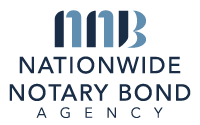With your expertise and skills, you can help individuals obtain loans, facilitating important financial transactions in your local community. But what is involved in becoming a Notary Loan Signing Agent?
This blog post will outline the steps required to become certified as a Notary Loan Signing Agent. We’ll cover the necessary qualifications, training requirements, and certifications. By arming yourself with this information, you can make an informed decision about pursuing this potential career path.
Get Notary Commission
The first step to becoming a notary signing agent is to obtain a notary commission. This can be done by filing an application with your state’s Secretary of State office and passing a licensing test.
Once granted, the notary commission will last for five to ten years, depending on the state. In addition to the application, you must purchase surety bonds and insurance coverage to protect yourself against any liabilities related to your services as a notary loan signing agent.
Learn the Basics
Learning about the different documents necessary during loan signings is essential. You should familiarize yourself with all applicable closing procedures and protocols in your state to provide accurate and consistent service during each appointment.
Get Listed in the Notary Signing Agent Databases
As a notary signing agent, you must get listed in all databases that list qualified agents. These databases are advertised by national mortgage companies looking for qualified professionals with the skills needed when dealing with closing paperwork and loan documents.
By getting listed in these databases, you will increase your visibility and boost your chances of getting more business opportunities from reputable customers who trust your services.
Get Certified as a Notary Loan Signing Agent
Certification as a notary signing agent is another great way to increase visibility and credibility when working as an independent professional.
Some states have special programs that teach people about mortgages. They learn how to close loans, answer customer questions, and understand legal papers. They also learn about e-signatures which help documents get done faster.
Getting certified shows you are good at your job and can do it well. It will help you get more jobs because people want someone who knows what they are doing.
Learn Loan Signing to Escrow Standards
All professional notaries must be up-to-date on escrow standards when dealing with loan signings, as they cannot proceed without being aware of them first. When signing a loan, certain things must be done. This is called “escrow standards.” It means ensuring all documents are accurate and real before being sent to the lender or other people like title companies or brokers.
A notary must learn and understand the rules for loan signings. If they do not follow the rules correctly when processing documents for mortgages or other loans, they could get into trouble with the law.
Learn How to Do Package Loan Documents
Notaries organize all the loan paperwork and put it together in one bundle. This includes cover sheets, affidavits, deeds, trusts, and mortgage releases.
Package loans can have special instructions. If needed, you may need to do extra steps after submitting the package. For example, if you need information from someone else before it is complete.
Ensuring all the documents for a real estate deal are accurate is important. This will help everyone involved in the deal move forward quickly without any problems. If documents are wrong, it can cause serious financial losses for everyone and could even lead to lawsuits or the deal not happening at all.
Establish Professional Connections
It can be helpful to align with lawyers and title companies. They can help you find new clients. Being part of those networks gives you more opportunities to make money. Over time, your network will grow bigger, and you will make even more money.
In addition, these connections can provide helpful advice about the laws, regulations, and procedures for loan signings in your state. They can provide you with additional training or resources that help you better understand the details of loan signings.
Advertise Your Services
To be successful, you need to tell people about your services. Make sure you provide good quality help with every part of the service. That is why advertising is so important for success. Put information online on social media like LinkedIn, Facebook, and Instagram.
Create a website and advertise products. Write blog posts and talk to your followers about what makes your business special. This will help you get more customers and make more money.
Get the Training You Need
Becoming a notary loan signing agent is a rewarding and potentially lucrative career path that provides an important service to the public. Notaries are highly trained professionals capable of verifying and authenticating legal documents as well as administering oaths. To become qualified, a notary must pass the state-mandated exam and obtain the necessary certification.
Once qualified, notaries can then begin their journey toward becoming loan signing agents, which requires additional training to be competent in the field. With hard work and dedication, loan signing agents can be successful in this profession by providing reliable customer service while accruing valuable experience that will help them build their professional network and further enhance their career opportunities.
With our extensive experience in the notary services industry, Nationwide Notary Bonds is the perfect partner to help you become a certified loan signing agent. As a full-service provider, we offer comprehensive training programs and materials to help you gain the necessary knowledge and skills to succeed as a loan signing agent.
Contact us today to get started on your journey to becoming a certified notary signing agent.


